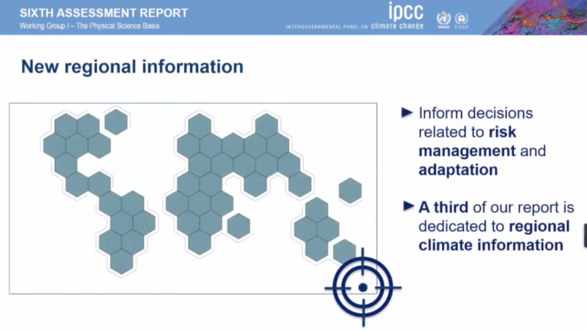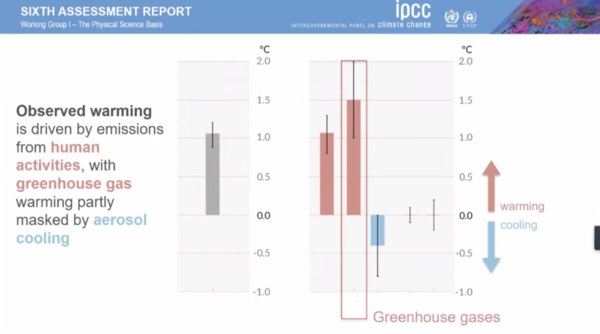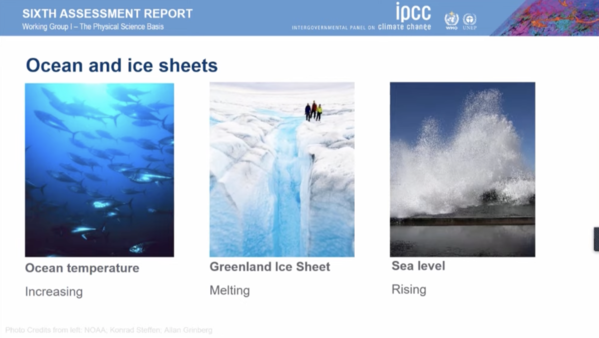The Sixth IPCC Assessment on Climate Change provides the most updated understanding of climate change based on 5 scenarios, all showing that global warming is set to reach ou exceed 1.5ºC in the coming 2 decades. Let’s take a quick look at some of the report’s conclusions.
What is the IPCC’s Climate Assessment About?
The IPCC is an international body of scientists set up under the United Nations Framework Convention on Climate Change to produce scientific data to assist countries in policymaking on climate matters.
Since the first assessment release in 1990 that this body — which got a Nobel Prize Award in 2007 — publishes assessment reports every 6 years. Despite its new and important feature that allows interactive simulations with a regional focus, this latter and 6th assessment doesn’t say anything new.
In fact, this IPCC Assessment reinforces scientists are observing changes in the Earth’s climate in every region and across the whole climate system and shows that emissions of greenhouse gases from human activities are responsible for approximately 1.1°C of warming since 1850-1900.
The IPCC is currently in its Sixth Assessment cycle, during which the Assessment reports of its three Working Groups, three Special Reports, a refinement to the methodology report, and the Synthesis Report will be produced. The Synthesis Report, which will be the final report, is due for release in 2022.
The IPCC’s 6th Report Shows A Rapidly Changing Planet
Many of the characteristics of climate change directly depend on the level of global warming, but what people experience is often very different from the global average. For example, warming over land is larger than the global average, and it is more than twice as high in the Arctic.
This is one of the reasons why the 6th Assessment Report of the Intergovernmental Panel on Climate Change used a new tool named Atlas for flexible spatial and temporal analyses of much of the observed and projected climate change information, including regional synthesis for Climatic Impact-Drivers — which can be found here.

The IPCC’s 6th Assessment outlines that climate changes will increase in all regions of the globe over the coming decades and that even with 1.5°C of global warming, there will be increasing heat waves, longer warm seasons, and shorter cold seasons – which will become more intense at 2ºC of warming.
IPCC 6th Assessment: It Is Not Just About Temperature Rise

Planetary health is more than just global warming: wind, snow, ice, dryness, or humidity patterns are changing too and will bring along challenging side effects.
For instance, on the one hand, climate change is intensifying the water cycle and bringing more intense rainfall (and flooding events). On the other hand, more intense drought events will take place in many regions like Northern, Western, and Central Europe.
Moreover, sea levels will continue rising throughout the 21st century, further adding to the risk of flooding in low-lying areas.
Extreme sea level events that previously occurred once in 100 years could happen every year by the end of this century.
Katherine Leitzell (IPCC) available here.
Meanwhile, marine heatwaves are projected to increase around the globe while ocean deoxygenation is projected to persist for thousands of years and ocean acidification is expected to increase due to increasing warming absorption.
It is also virtually guaranteed that the global mean sea level will continue to increase over the 21st century due to the continuous warming of the climate system – a rise that will continue for centuries to millennia, enhanced up by deep-ocean heat uptake and mass loss from ice sheets.

Regarding cities and urban areas, these will be warmer than the surrounding rural areas due to the urban heat island effect. This effect is mainly caused by little ventilation and heat-trapping due to the close proximity of tall buildings, heat generated directly from human activities, the heat-absorbing properties of concrete and other urban building materials, and the limited amount of vegetation.
There Is Hope: the IPCC 6th Assessment Report and COP26

The climate science that the IPCC Sixth Assessment reveals clearly provides invaluable input for climate negotiations and the decision-making processes that will take place next November at COP26 in Glasgow.
The Assessment provides new estimates about the chances of crossing the global warming level of 1.5°C in the next decades while it remembers the urgency of taking immediate, rapid, and large-scale reductions in greenhouse gas emissions.
With both the assessment and the new Atlas, policy-makers will have at their disposal important tools to plan strong and sustained reductions in emissions of carbon dioxide (CO2) and other greenhouse gases.
While the benefits from such reduction would come quickly for air quality, it could take 20-30 years to see global temperatures stabilize, and many phenomena – such as sea level rising- maybe be irreversible over hundreds to thousands of years, the IPCC Working Group I stresses.
Ultimately, the report shows that human actions still have the potential to determine the future course of
climate, mainly by cutting emissions down to net zero. There is still a narrow path to avoid climate catastrophe: we might not have another chance.
[Photo by Annie Spratt and Aleksandr Ledogorov on Unsplash]

